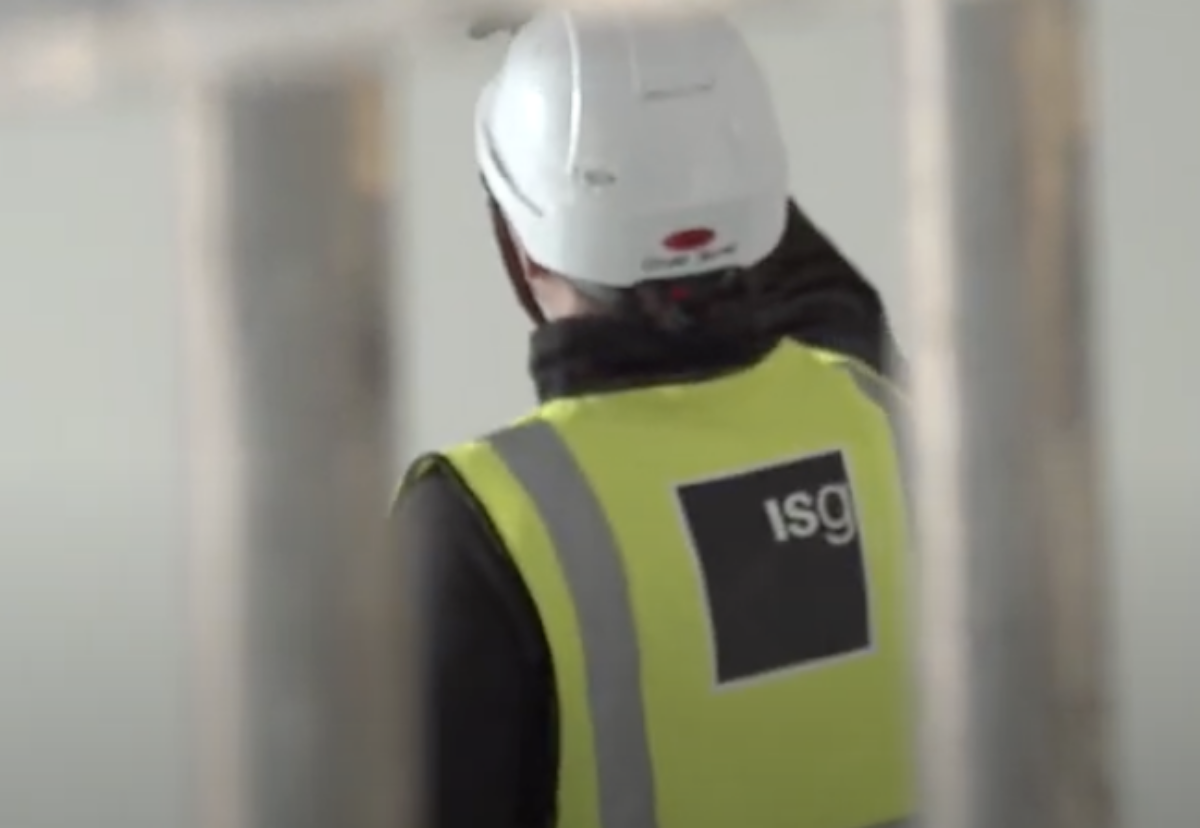It means there will be no cash for trade contractors owed at least £308m.
The group is now confirmed to have sunk with total debts of £1.1bn, much of this from complex intercompany debt, cash owed to trade creditors and more than £100m owed in tax.
A new report from administrator EY reveals the firm was about to report a staggering £148m in contract writedowns in overdue accounts for 2023 that recorded a £133m pre-tax loss.

Administrators have also given an official account of the chain of events that started to see the top five contractor teeter and finally sink into administration.
They reveal that as far back as 2020, ISG trading and cash performance was being impacted by large loss-making contracts in high-rise residential projects where significant additional time and higher costs were required to deliver.
The firm was also rocked by the cancellation of a £600m Hollywood Sunset Studio job and the termination of a £300m gigafactory contract for British Volt.
By late 2023 with over £100m in dispute on its projects, ISG found it was struggling to obtain performance bonds and found clients demanding cash-backed bonds for projects squeezing cashflow even further.

In October last year a winding up petition from a subcontractor owed £70,000 spooked the insurance market despite being paid straightaway.
This petition prompted a credit insurer to remove cover for multiple suppliers stoking wider concern about ISG’s financial stability.
Around this time, dwindling cash reserves forced ISG to seek extended terms to pay a £60m VAT bill hanging over it.
By January 2024, the situation had deteriorated further and ISG decided it would have to sell its profitable fit-out business or secure a cash injection from its US owner Cathexis.

Accountant EY was engaged to approach potential buyers worldwide and secured interest from 11 private equity and trade buyers.
But this sale process was halted when ISG received an offer for the group from Antipodean Holdings, led by South African entrepreneur Andre Redinger.
By July this year, the legal documentation for the deal was at an advanced stage, but Antipodean then informed Cathexis it was encountering difficulties in transferring funds from South Africa into the UK, citing regulatory approvals in South Africa and banking process-related delays.
On 2 September Antipodean dropped its offer to just £1 but maintained its commitment to fund working capital needs.

Cathexis accepted the reduced offer as the only solvent outcome for creditors and requested evidence that Antipodean had the necessary funds.
Due to lack of progress, ISG’s board halted talks with Antipodean and decided to reopen talks with one of the most interested buyers for ISG Fit Out.
After accelerated talks, this buyer dropped out because of concern about whether critical contracts could be novated.

Other firms were hastily approached but no potential buyer could be found within the tight time frame. aA main sticking point was unpaid group VAT for which ISG Fit Out was jointly and severally liable.
At the same time, Cathexis confirmed its own refinancing process would fail to release necessary funding in the near term. With nowhere to turn ISG directors decided to appoint administrator EY on 20 September.
At the time of collapse there were 100 live construction sites and some 500 live fit out and retail sites being worked on.


